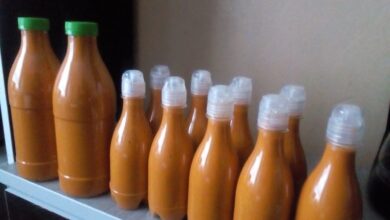Comprehensive Guide to Lesotho’s Export and Import Business: Procedures and Regulations

Lesotho’s commercial business landscape is primarily driven by imports. However, the country also boasts a robust export sector, particularly in locally manufactured commodities. These exports are primarily destined for countries outside the Southern African Customs Union (SACU). To streamline this process, traders must adhere to specific customs clearance procedures through the One Stop Business Facilitation Centre (OBFC) at the Ministry of Trade and Industry, Cooperatives and Marketing.
Understanding Export Procedures in Lesotho
Extra SACU Export Clearance
The clearance of goods destined for countries outside SACU (Extra SACU) is managed by the Customs office at the OBFC. This is crucial for textile manufacturers who trade in a variety of products, including:
- Clothing
- Tapestries
- Handicrafts
- Denim fabric
- Yarn
- Tea
Exporters in Lesotho are divided into two main categories based on their business interests: registered and unregistered exporters.
Categories of Exporters
1. Registered Exporters under Rebate 470.03
Exporters under Rebate 470.03 are allowed to import raw materials from outside SACU duty-free, provided they export the finished garments outside the SACU region. For exports within SACU, duties on the raw materials must be paid. Rebate certificates under 470.03 can be applied for twice a year, in January and July.
2. Exporters Registered under Schedule 3
This rebate aims to promote local manufacturing by allowing the importation of raw materials and accessories without paying duties, except on excisable goods.
3. Unregistered Vendors and Individuals
Unregistered exporters must pay duties on all raw materials used in manufacturing. They are free to export their products to countries with which Lesotho has trade agreements.
Required Export Documents
To process exports, the following documents must be submitted to the Customs office:
- Certificate of Origin: Verifies the origin of the goods.
- Examination Certificate: Confirms that the goods have been inspected.
- SAD 500/01/02: Standard Administrative Document for customs declarations.
- Commercial Documents: Include invoices, packing lists, and shipping instructions.
- F178 Exchange Control Declaration: For financial transactions related to exports.
Purpose of Documents
These documents serve multiple purposes, including product identification, value determination, commodity code assignment, transaction parties’ details, and applicable duties and taxes.
Certificate of Origin Types and Their Uses
- AGOA: For exports to the United States under the African Growth Opportunity Act.
- GSP: For exports to countries like Austria, Australia, and the United Kingdom under the Generalized System of Preferences.
- EUR1: For exports to EU member states.
- LGMC: For exports to countries without established trade agreements with Lesotho.
- SADC: For exports within the Southern African Development Community.
- CANADA: For exports to Canada.
- CHINESE: For exports to China.
Key Resources and Additional Information
For more detailed information on various aspects of Lesotho’s customs and export procedures, the following resources are available:
- Traveller Arrivals and Departures: Guidelines for entering or leaving Lesotho by air.
- Border Clearance Procedures: Detailed steps for clearing goods at the border.
- Classification & Valuation: Information on product classification and valuation.
- Customs Duties and VAT: Overview of applicable duties and VAT.
- Customs Clearing Agents: List of authorized agents.
- Penal Provisions: Penalties for non-compliance with customs regulations.
- Private Shoppers: Rules for individual shoppers.
- Rebate of Duty: Details on duty rebate schemes.
Navigating Lesotho’s export procedures requires a thorough understanding of the regulations and necessary documentation. By adhering to these guidelines, exporters can ensure a smooth clearance process, facilitating efficient trade and contributing to the country’s economic growth. For further assistance, exporters can consult the Customs office at the OBFC or visit the Ministry of Trade and Industry, Cooperatives and Marketing’s website.
Join 'Lesotho News' WhatsApp Channel
Get breaking Lesotho news — delivered directly to your WhatsApp.
CLICK HERE TO JOIN



